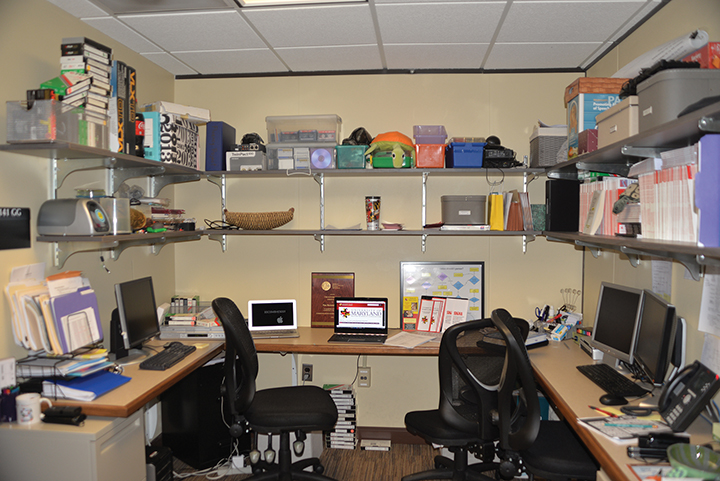When senior hearing and speech sciences major Kim Martin heard that she would be able to help teach a class for people who are on the autistic spectrum this semester, she was excited, but also nervous.
Before meeting them for the first time, she didn’t realize the teens in the class “could be so absolutely amazing,” Martin said.
“They are definitely smarter than I am,” she said. “It’s just the social piece that they need help with.”
Over the course of the semester, undergraduate students will be teaching teens on the autistic spectrum how to better interact in an environment that is new to them, said Kathy Dow-Burger, an assistant clinical professor with the department of hearing and speech sciences.
This class is offered as HESP 386: Experiential Learning, as part of the department’s Program for the Educational Enrichment of Relation Skills, Dow-Burger said.
This is the first class introduced this semester in the department to have only undergraduate seniors do clinical work — usually done by graduate students, Dow-Burger said.
“[The students] go through their freshman and senior year … and only a few get to have clinical experience,” she said. “This is the first semester that we have picked students who are in their senior year and doing work that graduate students would be working on.”
This class is also the first one offered in the department aiming to help teens who are diagnosed with high functioning autism, as well as help the parents of children who are on the autistic spectrum, Dow-Burger said.
The course will specifically address challenges that autistic teens interested in going to college may face, she added.
“What they struggle with is social skills and the ability to navigate a campus life,” she said. “If we catch them before they go into college, then we can give them the skills to prep them for college.”
The Program for the Educational Enrichment of Relational Skills, or PEERS, is an effort to expand services to the community and give more students the opportunity to work in clinical training, said Colleen Worthington, the department’s director of clinical education in speech language pathology.
One in 68 children now have an autism spectrum disorder, according to the National Autism Association.
Autism Spectrum Disorder can also be classified as an “invisible disorder” that sometimes people don’t always recognize as a disorder, Worthington said.
“If someone has a physical disability, you see it right away … you obviously know that they might need an accommodation for a ramp instead of stairs,” she said. “With an autism spectrum disorder, the student who has been successful enough to finish high school and go into college, it may not be obvious to anyone that they have a disability.”
A great way to show these kids how to enhance their social skills is by role playing, Martin said.
“Two [undergrads] would do a scene where they would trade down information, and then we broke into teams to have [the kids] try it out for themselves,” she added.
Being in an unstructured environment can be particularly challenging, and having this class will teach the teens who are on the autistic spectrum how to have both an academic and social perspective, Worthington said.
“These are students who have a great love for structure,” she said. “We are teaching them strategies on how to deal with unpredictable situation and interactions, whether it is with your roommate or the professor in your class or the worker in the dining hall.”
Having been lucky to have had a great college experience, Martin said she is happy this program now exists.
“From one college student to another, I see it as making their college life better,” she said. “I just want to give that [similar college experience that I had] to everyone possible, especially with this population [people on the autistic spectrum].”



